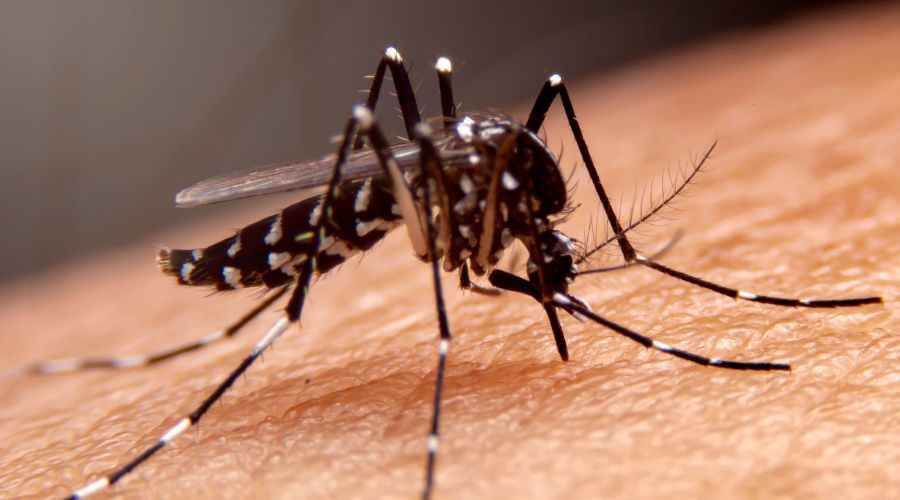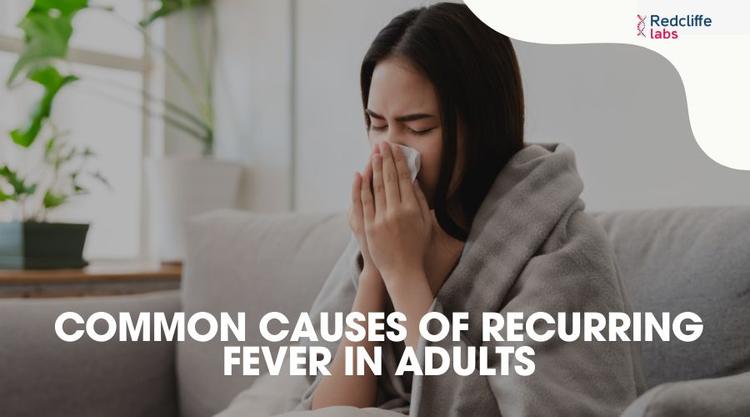How Many Days Does Dengue Fever Last?

Medically Reviewed By
Dr Divya Rohra
Written By Sheena Mehta
on Jun 17, 2024
Last Edit Made By Sheena Mehta
on Jul 19, 2025

Overview
Dengue is a viral infection that spreads from mosquito bites to people. This virus is ubiquitous in tropical and subtropical climates.
There are four dengue virus stains:
- DENV-1
- DENV-2
- DENV-3
- DENV-4
People with dengue fever will either show no symptoms or experience high fever, headaches, small red or bleeding spots on the skin, vomiting, nausea, muscle pain, and joint pain.
However, people with severe dengue fever can experience hemorrhagic fever, which may further lead to circulatory system failure, shock, and even death.
Not to Be Missed:
- One must seek medical attention promptly in case they suspect dengue fever.
- Two dengue vaccines are available: a tetravalent, live-attenuated dengue vaccine (Dengvaxia®) and Qdenga® (TAK-003). However, neither of these vaccines is currently available in India.
5 Key Facts About Dengue
- Every year, an estimated 390 million people are infected with the dengue virus, resulting in up to 36,000 deaths.
- Primary dengue infections are asymptomatic. As a result, most people with dengue have mild or no symptoms and will recover in one or two weeks.
- Dengue fever usually goes away on its own and rarely kills.
- The symptoms start 4–10 days after the infection and last 2–7 days.
- There is still no cure for dengue. However, early detection and proper medical care can prevent fatalities from severe dengue.
Let’s discover the three stages of dengue fever in detail.
As mentioned above, people with an initial dengue virus (DENV) infection usually show mild or no symptoms and recover within 1 to 2 weeks.
If symptoms appear, they are visible 4–10 days after being bitten by an infected mosquito and beyond the 3–14 days incubation period.
The incubation period for dengue fever can be short or long, depending on an individual's locality, condition, and immunity. At this stage, it is almost impossible to determine the cause of the disease, as there are no symptoms.
The three stages of dengue fever are as follows:
- Febrile or Fever Phase (usually lasts for three days, with up to 7 days): This stage is characterized by the sudden arrival of fever. Some symptoms may include:
- High Fever (40°C/104°F)
- Vomiting
- Swollen Glands
- Nausea and vomiting
- Severe Headache
- Pain behind the eyes
- Muscle and joint pains
- Skin Rash
- Loss of appetite
- Epigastric pain with diarrhea
Attention: Individuals infected with dengue virus for the second time are at greater risk of severe dengue.
- Critical phase of dengue fever: It is the second stage of dengue fever that occurs around 3–7 days after the febrile phase. Some symptoms may include:
- Bleeding gums or nose
- Pale and cold skin
- Persistent vomiting
- Rapid breathing
- Being very thirsty
- Severe abdominal pain
- Fatigue
- Restlessness
- Weakness
- Heavy menstruation and bleeding for a prolonged time
Note: People with severe dengue symptoms should seek medical attention immediately.
- Recovery Stage: This is the final stage of dengue fever, in which the body gradually recovers. The signs of the recovery or final phase include:
- Overall improvement
- The body temperature returns to normal.
- Normal blood pressure and pulse rate
- Improved appetite
- It begins to produce a lot of urine.
- An enlarged liver begins to shrink within 1-2 weeks.
Also read: https://redcliffelabs.com/myhealth/blood-test/dengue-test-price-procedure-preparation-range-2024/
How Can You Recover from Dengue Fever Fast?
There is no specific medicine available for the fast recovery of dengue fever. In most cases, dengue fever will go away within a couple of weeks without causing any long-term repercussions.
You can be treated at home with medicine in cases of mild dengue fever. It is important for them to:
- Rest
- Drink plenty of fluids.
- Take acetaminophen (paracetamol) to reduce fever.
Disclaimer: Avoid aspirin and ibuprofen, as they can increase the risk of bleeding. However, if you suffer from severe dengue, consult a doctor immediately and seek hospitalization.
Also read: https://redcliffelabs.com/myhealth/health/where-should-i-get-a-dengue-test-done/
10 Ways to Prevent Dengue Fever Are:
There is no specific treatment for dengue fever, including no widely available dengue vaccine to prevent dengue infection. The best ways to avoid it include:
- Wear long, loose-sleeved clothes that are also light in color.
- Wear socks and covered shoes.
- Keep unscreened windows and doors closed.
- It is safe to sleep under mosquito nets. ‘
- Use products that contain DEET to repel mosquitoes and other insects.
- Adding kerosene to stagnant water can help prevent mosquitoes from breeding.
- Mosquitoes are more active around sunrise and sunset. You can limit the time you spend.
- Ensure your house is filled with sunlight.
- Burn camphor for about 30 minutes in your room. It will kill all kinds of pests.
- Boost your immunity by eating a well-balanced diet.
There is no cure for dengue, and serious conditions can lead to death. However, following simple steps can reduce the risk of your family members getting beaten by mosquitoes and suffering consequences.
The Final Views:
According to the World Health Organization (WHO), dengue can be classified into dengue without and with symptoms, including vomiting, abdominal pain, difficulty breathing, lethargy, and fluid imbalances. Consult your healthcare provider if you have dengue fever and the symptoms last 3 to 7 days.
Leave a comment
1 Comments
അനീഷ്. കെ
Oct 7, 2024 at 2:15 PM.
എന്റെ സ്ഥലം കൊല്ലം ജില്ലയിലാണ്. ഡെങ്കി പനി തുടങ്ങിയിട്ട് രണ്ടാഴ്ചയിൽ കൂടുതലായി. പനി മാറിയിട്ട് നാലു ദിവസത്തിൽ കൂടുതലായി. പക്ഷെ ശരീര വേദന മാറുന്നില്ല. അതിനു ഇനി എന്താണ് പ്രധിവിധി?...
Myhealth Team
Oct 8, 2024 at 5:01 AM.
ഡെങ്കിപ്പനി മാറിയെങ്കിലും ശരീരവേദന തുടരുന്നത് സാധാരണമാണ്. ഇത് കുറയ്ക്കാൻ, കൂടുതൽ വെള്ളം കുടിക്കുക, വിശ്രമിക്കുക, ഡോക്ടർ നിർദേശിച്ച പാരസറ്റമോൾ പോലുള്ള മരുന്നുകൾ ഉപയോഗിക്കുക, പോഷകാഹാരം പാലിക്കുക എന്നിവ ചെയ്യാം. ദേഹവേദന വളരെ ദോഷകരമാകുമ്പോൾ ഡോക്ടറെ കാണുന്നത് ഉചിതമാണ്.



